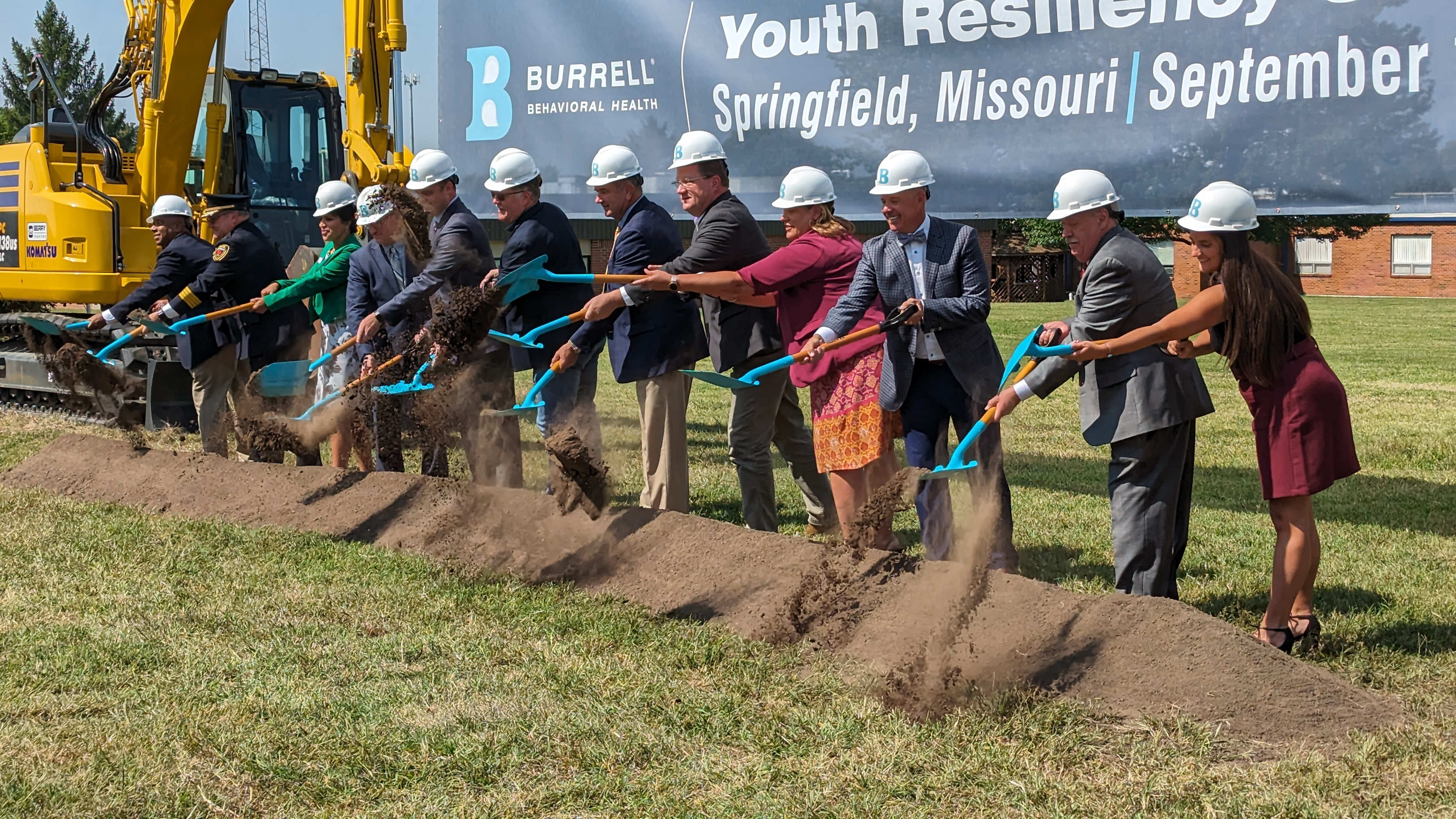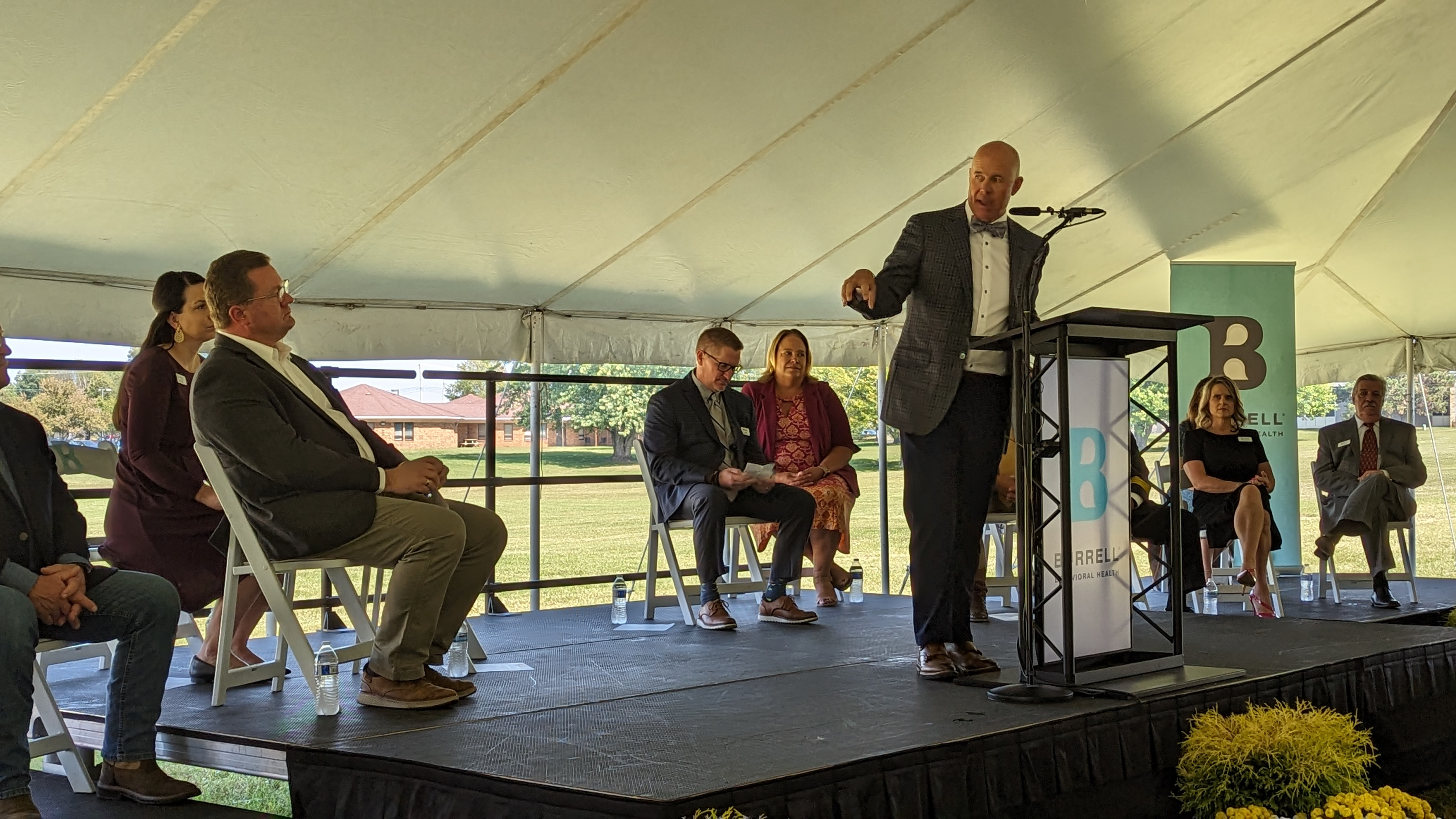Luka Chabolla, 15, made the decision for himself to get mental health help. After going through a gauntlet of family situations, he spent six months at Burrell Behavioral Health’s’ Milano House in Springfield.
In that time, Chabolla learned a lot about themself, including how to open up to family and friends invested in his well-being.
“Talking to people was helpful, but I needed a deep dive into why I was experiencing things the way I was,” Chabolla said. “When I decided to accept help, I wasn’t thinking of me as much as my family and friends. The longer I realized there was more to live for, for myself as well as other people, the better I got.”
On Monday, Chabolla got an advanced look at what teens will have access to in the future.

New center to offer expanded services
Officials with Burrell on Monday broke ground on a new health center focused on mental health services for kids 13 to 17 years old. When finished, the Youth Resiliency Campus will offer an always-open crisis center for emergencies, outpatient programs, partial hospitalization and a long-term youth residential facility with 16 beds.
Monday’s groundbreaking drew a crowd of more than 100 people, and featured a handful of community members turning over the first shovels of dirt. It will be located on North National Avenue, near Perimeter Behavioral Hospital.
The Youth Behavioral Crisis Center would handle youth in the midst of a crisis related to mental health or substance abuse. It represents the first phase of the project; the long-term facility is a separate phase.
The center is similar to a crisis center opened in 2020 for adults. Officials quickly discovered the same services are needed for children.
“They won’t have to wait for an appointment, they won’t have to wait for a referral,” said Mitra Pedram, director of Burrell’s Behavioral Crisis Center. “As soon as they are experiencing a crisis and they know that they need some support, there will be a place for families and youth to go.”
Pedram said the 24/7 crisis center is one of several new features that would be added to Burrell’s services once the campus is completed. Its goal is to become a one-stop location that offers a full range of services for kids in need.
Such always-open crisis centers for youth are not common across the country, Pedram said. In remarks during Monday’s ceremony, Lt. Gov. Mike Kehoe said that the center has the potential to be a model that the rest of the nation can learn from.
The outpatient program is structured to be intensive, according to documentation provided by Burrell, and would offer structured treatment for youth and their parents a few times a week. The partial hospitalization program would feature care five days a week for about five hours each day.

Funding priority
Projected to open sometime in 2025, a majority of the funding for the $14 million center comes from federal and state grants. $5.35 million in American Recovery Plan Act funds was allocated by the Greene County Commission.
Greene County Presiding Commissioner Bob Dixon said the commission made funding this center a priority when deciding how to allocate money given to the county through ARPA.
“This was our first and largest ARPA award,” Dixon said during the ceremony. “The commissioners and I pored over literally hundreds of excellent applications that would have addressed very important needs in our community. And as we looked at the recurring themes behind those needs, many of those spoke to one issue, the need for mental health services.”
Another $6 million comes from state funding, including a $5 million allocation in the state budget for fiscal year 2024, and a one-time $1 million grant from the Missouri Department of Mental Health.
C.J. Davis, CEO of Burrell's parent company Brightli, said the center is a community collaboration that tackles an area of strong need.
“(This) is something that addresses the behavioral health crisis that we are encountering with children and adolescents,” Davis said. “Suicide rates, depression and anxiety are all in the climb. Together, we have an opportunity as a community to make a difference addressing each of those concerns.”
Never closing makes a difference
Chabolla said they were excited to see what would be available for teens suffering the same types of stress. Both he and his mom, Natalie Murray, found Burrell staff to be accepting and accommodating of a lot, including his gender expression.
“It’s not just in the morning or in the evening when you experience a crisis,” Chabolla said. “When you experience something at night, and there is nothing open that can be really impactful, you have to try and control yourself until you can get help, and sometimes that is just not an option. Not everyone can wait and put off their emotions.”

